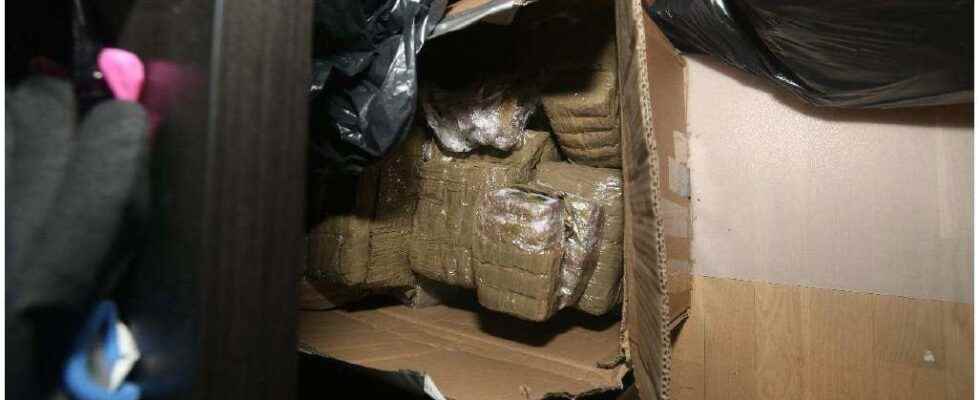Published: Less than 20 min ago
full screen
Next
300 kilos of drugs were found in the apartment rented by the 19-year-old woman. She is now charged with particularly serious drug offences.
1 of 2 Photo: The police’s preliminary investigation report
Two previously unpunished women risk several years in prison for involvement in an extensive drug operation in Stockholm.
The women deny crimes, but police and prosecutors see how so-called “green people” who go under the police’s radar are of great interest to the gangs.
The 19-year-old woman is lying in bed sleeping when the police enter, on a Tuesday afternoon in April 2022.
“Next to the suspect was a mobile phone that the suspect stated was hers. Otherwise, the apartment was covered with full garbage bags containing suspected drugs, cartons and bags with unknown contents,” writes one of the policemen later about the arrest.
The patrol is actually in the building on another matter but has reacted to the strong smell of cannabis from the apartment. A decision on the house search is obtained and the drug center is thus discovered by chance.
The value of the narcotics in the apartment, around 300 kilos, is later estimated at around SEK 40 million on the street, but if it weren’t for the smell, it probably wouldn’t have been discovered. The woman was previously unpunished and completely unknown to the police – there is also a woman in her 30s who was arrested just over a month later on suspicion of involvement.
– We had no control over them before. It was completely “green people”, says Jesper Jonsson, responsible investigator at the police.
Stored and transported
This week, they were both charged with particularly serious drug offences. According to the indictment, the 19-year-old was mainly responsible for storing the narcotics, while the other woman is mainly alleged to have managed transport.
According to prosecutor Kevin Öksuz, they have acted on behalf of a third, unidentified person.
– It is difficult to say exactly how they were drawn in. What you can say in general, and which I think is also relevant in this case, is that in recent years they have started using young people who have gone unpunished, he says.
– Unfortunately, it is something that is becoming more and more common, he continues.
TT: Your assessment is that it is connected to organized crime?
– I would like to state that it is clear that it took place within the framework of serious organized crime, says Öksuz, and points to, among other things, the scope of the activity.
More common
Even police investigator Jesper Jonsson says that one sees tendencies towards it becoming increasingly common for gang criminals to use unpunished people to reduce the risk of discovery.
– If you are a professional criminal in some type of gang constellation, you often have eyes on you from the police. If you have things you want to keep, it’s grateful to put them on a person who doesn’t have them, he says.
Christine Chi, a senior prosecutor with a focus on organized crime who currently works at the Danish Prosecutor’s Office’s training centre, believes that the gangs’ exploitation of people without a criminal history is something that has been going on for a number of years.
– But it’s not just about young men anymore, it can also be young women. It’s everything from storing narcotics in storage areas belonging to unpunished people to these taking care of weapons or clothes after something has happened, she says.
– This makes it sometimes more difficult to get hold of weapons or drugs, so we have to think a little bigger, she continues.
Denies crime
Apart from the fact that one of the women was in the apartment when the narcotics were found, the evidence against them consists of information from mobile phones and chats, as well as DNA and fingerprints left on the narcotics.
They themselves have consistently denied any crime, however, without giving any answers in questioning with the police. Their explanations will instead be submitted to the district court, the women’s lawyers told TT
Facts
Drug crime
It is illegal to sell, manufacture, acquire, process, transport and possess narcotics. It is also illegal to mediate contacts between sellers and buyers.
The standard penalty for drug offenses is imprisonment for a minimum of 14 days and a maximum of three years. If the crime is considered minor, you can be sentenced to a fine or imprisonment for up to six months.
For serious drug crimes and serious drug smuggling, the penalty is a minimum of two years in prison and a maximum of seven years. For particularly serious drug crimes and particularly serious drug smuggling, you can be sentenced to a minimum of six years in prison and a maximum of ten years.
Source: The police
Read more
